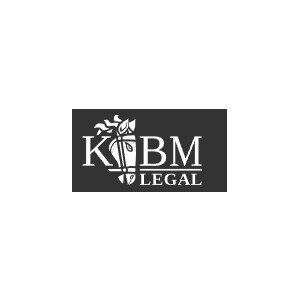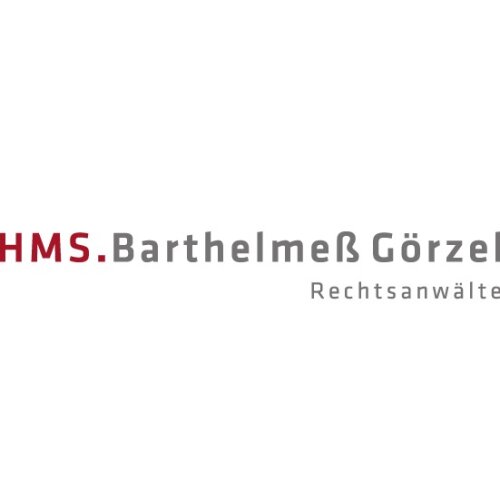Best Tax Lawyers in Cologne
Share your needs with us, get contacted by law firms.
Free. Takes 2 min.
List of the best lawyers in Cologne, Germany
About Tax Law in Cologne, Germany
Cologne, Germany, follows a comprehensive taxation system that is governed by both national and local laws. Tax law in Cologne includes various taxes, such as income tax, value-added tax (VAT), corporate tax, and property tax. These taxes are crucial sources of revenue for the municipal government and help fund public services and infrastructure in the city.
Why You May Need a Lawyer
There are several situations where you may require legal assistance in tax-related matters in Cologne, Germany:
- If you are starting a business or are a self-employed individual, a lawyer can help you understand your tax obligations, register your business, and ensure compliance with tax laws.
- If you are facing an audit or investigation by the tax authorities, a lawyer can provide guidance, represent your interests, and help resolve any disputes or issues.
- If you have complex financial transactions or investments that involve tax implications, a lawyer can help you navigate through the legal complexities and optimize your tax position.
- If you believe you have been wrongly assessed for taxes or are facing excessive tax liabilities, a lawyer can analyze your situation, advise on potential legal remedies, and help you appeal the decision.
- If you need assistance in preparing and filing your tax returns accurately and efficiently, a lawyer can offer guidance, ensure compliance with applicable laws, and maximize your tax benefits.
Local Laws Overview
In Cologne, Germany, tax laws closely align with the federal tax regulations. However, some local laws may impose additional taxes or have specific provisions that impact taxpayers in Cologne. Key aspects of local tax laws include:
- Local Tax Rates: Cologne sets its own local tax rates, which may vary from other cities in Germany. It is important to be aware of the specific local tax rates applicable to your situation.
- Tax Deductions: Local tax laws may offer additional deductions or exemptions that are specific to Cologne. Understanding these deductions can help you optimize your tax position.
- Reporting Requirements: Similar to federal regulations, Cologne may have specific reporting requirements for certain local taxes. Familiarize yourself with the reporting obligations to avoid penalties or non-compliance.
- Local Tax Incentives: Cologne may provide certain tax incentives, such as tax breaks for local businesses or investments. If you qualify for these incentives, a lawyer can help you take advantage of them.
Frequently Asked Questions
1. Can I file my tax returns online in Cologne, Germany?
Yes, the tax authorities in Cologne provide an online portal where taxpayers can file their tax returns electronically. This e-filing system offers convenience and streamlines the tax filing process.
2. What is the tax year in Cologne, Germany?
The tax year in Cologne, Germany, follows the calendar year, which means it starts on January 1st and ends on December 31st. Taxpayers must file their annual tax returns for the previous tax year by May 31st of the following year.
3. How are property taxes assessed in Cologne?
Property taxes in Cologne are calculated based on various factors, including the property's size, location, and intended use. The assessed value of the property determines the tax liability. It is advisable to consult a lawyer or a tax professional to understand the specific details and regulations regarding property tax assessments in Cologne.
4. Are there any tax incentives for renewable energy investments in Cologne?
Yes, Cologne offers tax incentives for renewable energy investments. Investors in solar, wind, or other renewable energy projects may be eligible for tax credits, deductions, or other incentives. It is recommended to consult a lawyer or tax expert to explore the available incentives and understand the requirements for qualification.
5. Can I claim tax deductions for charitable donations in Cologne?
Yes, taxpayers in Cologne can claim tax deductions for charitable donations. Donations made to registered charitable organizations may be eligible for deductions, subject to certain limits and conditions. Consult a lawyer or tax professional to understand the specific rules and requirements for claiming deductions on charitable donations.
Additional Resources
For further information and resources related to tax law in Cologne, Germany, consider the following:
- Cologne Tax Authority: The Cologne Tax Authority website offers guidance, forms, and information on tax regulations specific to the city. Visit their website for local resources and contact details.
- German Federal Ministry of Finance: The official website of the German Federal Ministry of Finance provides comprehensive information on federal tax laws and regulations applicable throughout Germany.
- Chamber of Tax Consultants Cologne: The local chamber of tax consultants can provide a list of qualified tax professionals in Cologne who can assist you with specific tax-related matters.
Next Steps
If you require legal assistance in tax-related matters in Cologne, Germany, consider the following steps:
- Research and identify lawyers in Cologne who specialize in tax law.
- Arrange a consultation or appointment with a lawyer to discuss your specific situation.
- Come prepared with relevant documents, such as tax notices, financial records, or other supporting information.
- During the consultation, explain your concerns, questions, or any ongoing legal issues related to tax.
- Listen carefully to the lawyer's advice and ask any additional questions or clarifications needed.
- Based on the consultation, decide if you want to engage the lawyer's services to assist you further.
- If you proceed with hiring a lawyer, discuss and agree upon the terms of engagement and the associated fees.
- Follow the lawyer's guidance and instructions to address your tax-related matters effectively.
Lawzana helps you find the best lawyers and law firms in Cologne through a curated and pre-screened list of qualified legal professionals. Our platform offers rankings and detailed profiles of attorneys and law firms, allowing you to compare based on practice areas, including Tax, experience, and client feedback.
Each profile includes a description of the firm's areas of practice, client reviews, team members and partners, year of establishment, spoken languages, office locations, contact information, social media presence, and any published articles or resources. Most firms on our platform speak English and are experienced in both local and international legal matters.
Get a quote from top-rated law firms in Cologne, Germany — quickly, securely, and without unnecessary hassle.
Disclaimer:
The information provided on this page is for general informational purposes only and does not constitute legal advice. While we strive to ensure the accuracy and relevance of the content, legal information may change over time, and interpretations of the law can vary. You should always consult with a qualified legal professional for advice specific to your situation.
We disclaim all liability for actions taken or not taken based on the content of this page. If you believe any information is incorrect or outdated, please contact us, and we will review and update it where appropriate.









